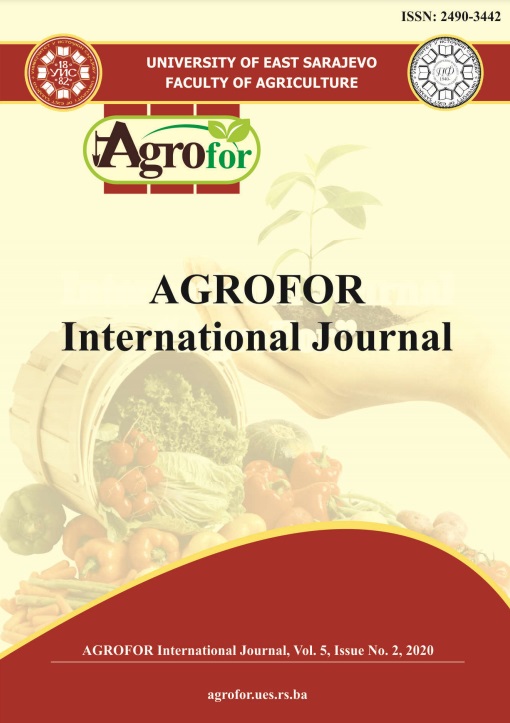ECONOMIC VALUATION OF SURFACE IRRIGATION WATER: SHIRE VALLEY, SOUTHERN MALAWI
DOI:
https://doi.org/10.7251/AGRENG2002056BAbstract
Economic valuation of surface irrigation water and the factors that determine
willingness to pay for such resource for sustainable purposes is not clearly defined
in Malawi. This paper evaluated economic value of surface water used in irrigation
and identified factors influencing farmers' decision to participate in water markets
for rice and sugarcane production in Upper Shire Valley of Southern Malawi. A
cross-sectional data from 310 households involved in irrigation activities was used.
General Algebraic Modelling System (GAMS) was employed to determine the
economic value of surface water. Craggit Double Hurdle Model and Range-WTP
procedure was employed to determine factors influencing farmers' decision to
participate and pay for surface water solicit the social value of the surface water.
The results revealed an economic value of 480.77 Malawi Kwacha1 (MK)/m3 for
surface water in the valley, but specifically pointed out that surface water value for
rice and sugarcane production was MK 512.96/m3 and MK 448.58/m3 respectively.
Households irrigating rice and sugarcane revealed a willingness to pay for water at
MK 1.67/m3 and MK 2.87/m3 respectively. Farming as a livelihood, plot status,
crop type and market prices are reported to be influencing household participation
in the water market. The study recommends that: (i) Farmers must always be
informed of the economic value of irrigation water and be prepared to pay for it;
and (ii) The allocated land should have a well-defined period of access and crop
types to be grown in the valley should be of high economic value.

